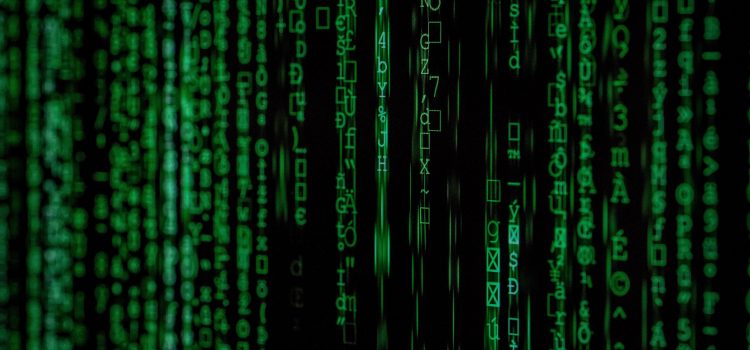
The digital age has transformed our world in more ways than we could ever have imagined. From social media to online shopping and even virtual dating, it seems like everything is just a click away. But with all the convenience that technology brings, there’s also an increasing risk of cyber threats lurking around every corner. As the United States becomes increasingly interconnected, cybersecurity has become more important than ever before. In this blog post, we’ll take a closer look at why protecting yourself against cyber threats is essential and what steps you can take to stay safe in the digital realm.
The cyberattack on the Office of Personnel Management
Since July 29, 2015, the Office of Personnel Management (OPM) has been the target of a cyberattack. The OPM is responsible for administering federal employment and benefits programs. The attack caused data to be stolen including social security numbers, dates of birth, and other personal information. As of September 30, 2016, it is estimated that over half a million people may have been affected by the cyberattack.
The cyberattack on OPM is one example of how cybersecurity is more important than ever in the USA. In recent years, there have been numerous high-profile data breaches that have had a serious impact on individuals and businesses across the country. Cybersecurity specialists are alwaysevaluating new threats and developing new strategies to protect against them.
One key strategy for protecting against cyberattacks is to use strong passwords and encryption measures when transmitting confidential information online. Another important step is to keep up-to-date on cybersecurity trends and adopt best practices when handling sensitive data.
The rise of ransomware
Cybersecurity is more important than ever in the USA, with reports of ransomware becoming more common. Ransomware is a type of malware that encrypts a user’s data and then asks for payment in order to release it. The most common ransomware infections are through email attachments or links, and users are typically prompted to pay a ransom in order to get their data back. This type of malware has become increasingly popular as criminals find new ways to exploit users’ trust without their knowledge or consent. There have been numerous high-profile cases of companies paying ransoms, including WannaCry and NotPetya, which have caused significant damage and disruption. The rise of ransomware shows just how vulnerable we are to cyberattacks, and how important it is for businesses to have strong cybersecurity practices in place.
The impact of data breaches on businesses
According to a study conducted by the Ponemon Institute, more than 90% of businesses have experienced a data breach in the past three years. The impact of data breaches on businesses can be significant, ranging from financial losses caused by theft of client information, to damage done to company reputation resulting from unauthorized release of confidential information.
Data breaches are also costly for companies in terms of time and resources spent investigating and remedying the issue. In addition, lost customer confidence can lead to decreased sales and other negative consequences. To maximize the potential benefits of data breaches while minimizing the costs and risks involved, it is important for businesses to have robust cybersecurity protections in place.
One way to protect against data breaches is through regular exercise of cyber hygiene practices, such as using secure login procedures, encrypting data at rest, and monitoring network traffic for signs of suspicious activity. Additionally, businesses should maintain up-to-date antivirus software and firewalls to protect against potential attacks. In instances where data is particularly sensitive or valuable, organizations may need to implement additional measures such as enhanced user authentication procedures or physical security measures for servers housing sensitive data.
The importance of cybersecurity legislation
Cybersecurity legislation is more important than ever in the USA as hackers target businesses and individuals for financial gain and to harm public safety. Here are four reasons why cybersecurity legislation is so essential:
1. Economic Security: Cybersecurity threats cost businesses billions of dollars each year, with losses averaging $5 million per organization. The economic impact of cybercrime extends beyond the direct costs of theft or damage; companies also suffer from decreased productivity and morale due to the fear of cyberattacks. In fact, a recent study found that nearly two-thirds (64%) of CEOs believe their company’s security has been harmed because of cyberthreats.
2. Public Safety: Cyberattacks can cause physical injuries and even death, including through the spread of malicious software or ransomware that locks up computers until a payment is made. In 2016, for example, WannaCry ransomware infected over 200,000 machines across 150 countries, disrupting healthcare procedures and crippling businesses around the world.
3. National Security: Hackers have targeted both government entities and private companies for national security purposes, such as intelligence gathering or disruption of critical infrastructure. In March 2017, for example, Russian hackers infiltrated electrical utility systems in seventeen states—an attack that could have resulted in widespread power outages had it not been detected and thwarted within hours.
4. International Competitiveness: Countries that are able to secure their networks against attacks from other nations are better positioned to compete in global markets. For example,
How to protect your business from cyberattacks
Cybersecurity is something that businesses need to be more aware of now more than ever. The amount of data that businesses hold, the way in which they operate and their reliance on technology mean that cyberattacks can have a devastating impact. Cybersecurity isn’t just about protecting your data; it’s also about protecting your reputation and brand.
There are different ways to protect your business from cyberattacks, but the most important thing is to be proactive. Make sure you have a plan in place and keep up to date with the latest security threats. Additionally, make sure you have the right infrastructure in place to deal with a cyberattack: you need to have well-trained staff who are equipped with the right tools, and you need to have a secure network system in place.
Finally, don’t forget to keep an eye on your customer data. If someone gains access to your customers’ information, they can use it for all sorts of malicious purposes. Make sure you have adequate safeguards in place to protect this information, and don’t let anyone walk off with it without being noticed!










